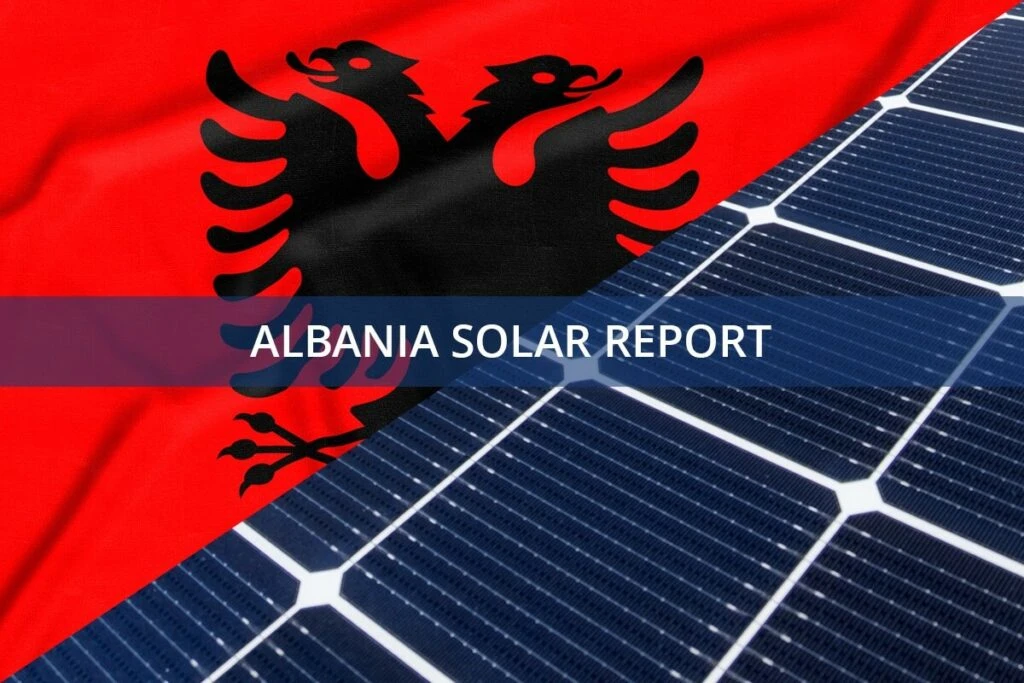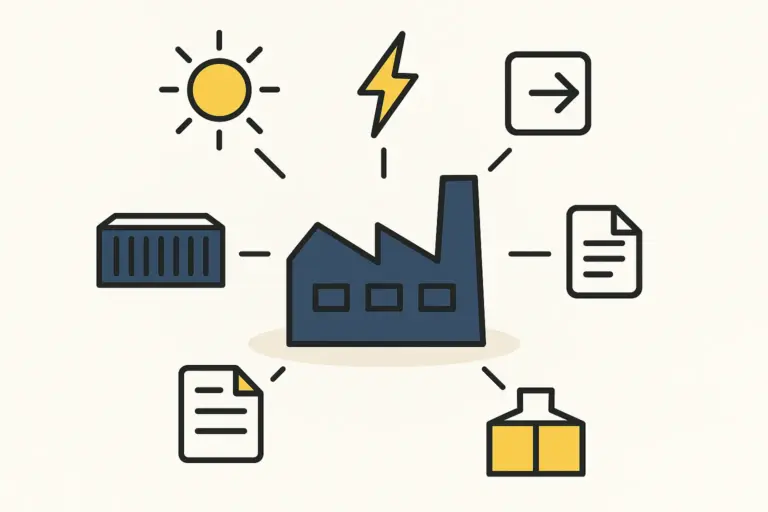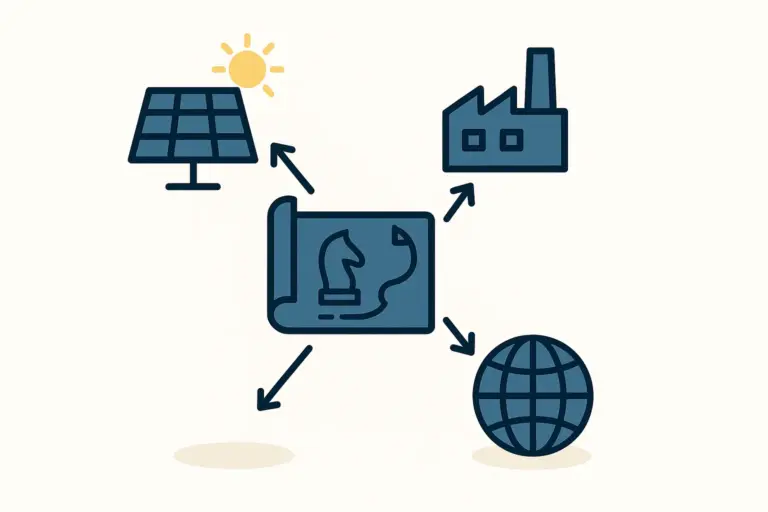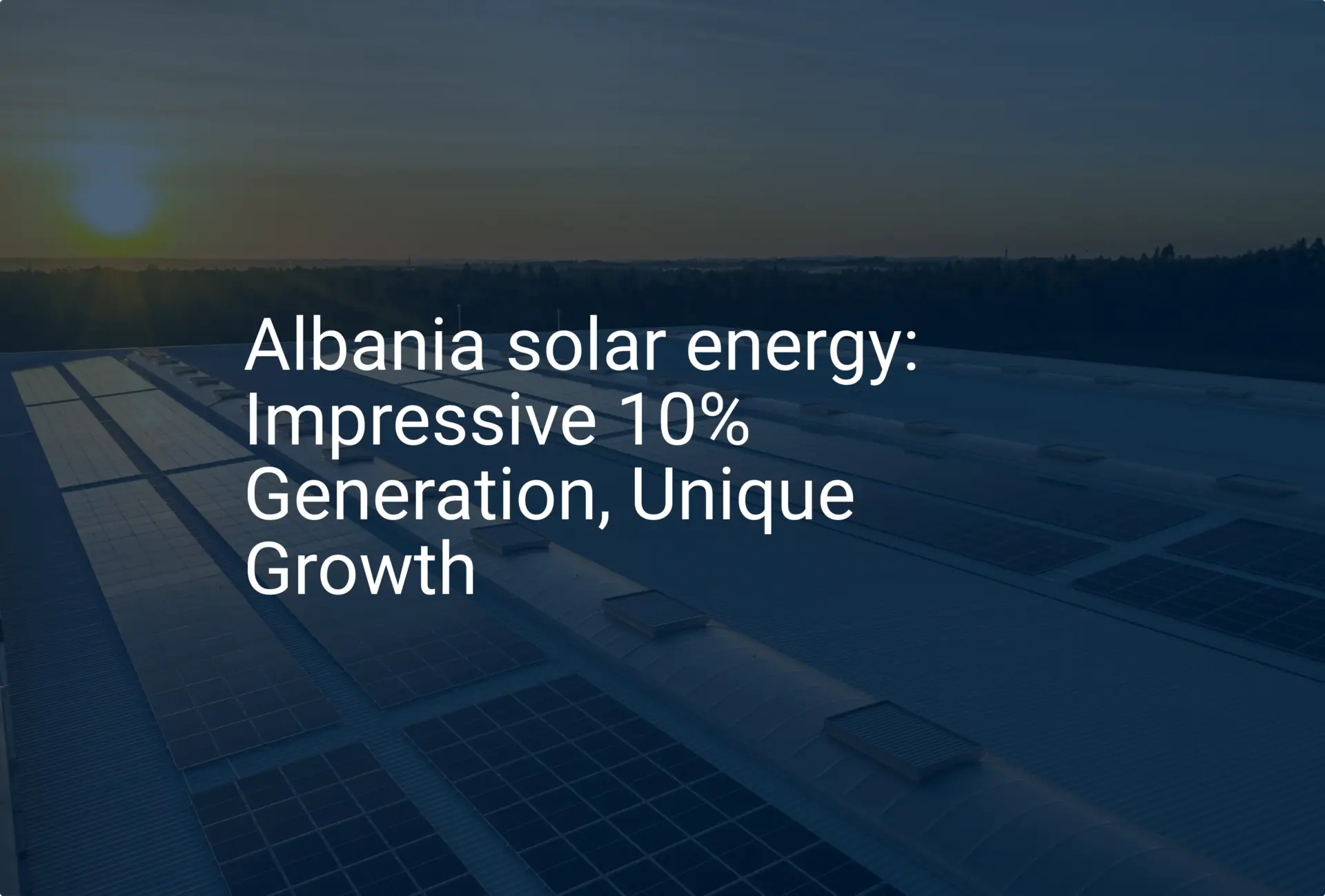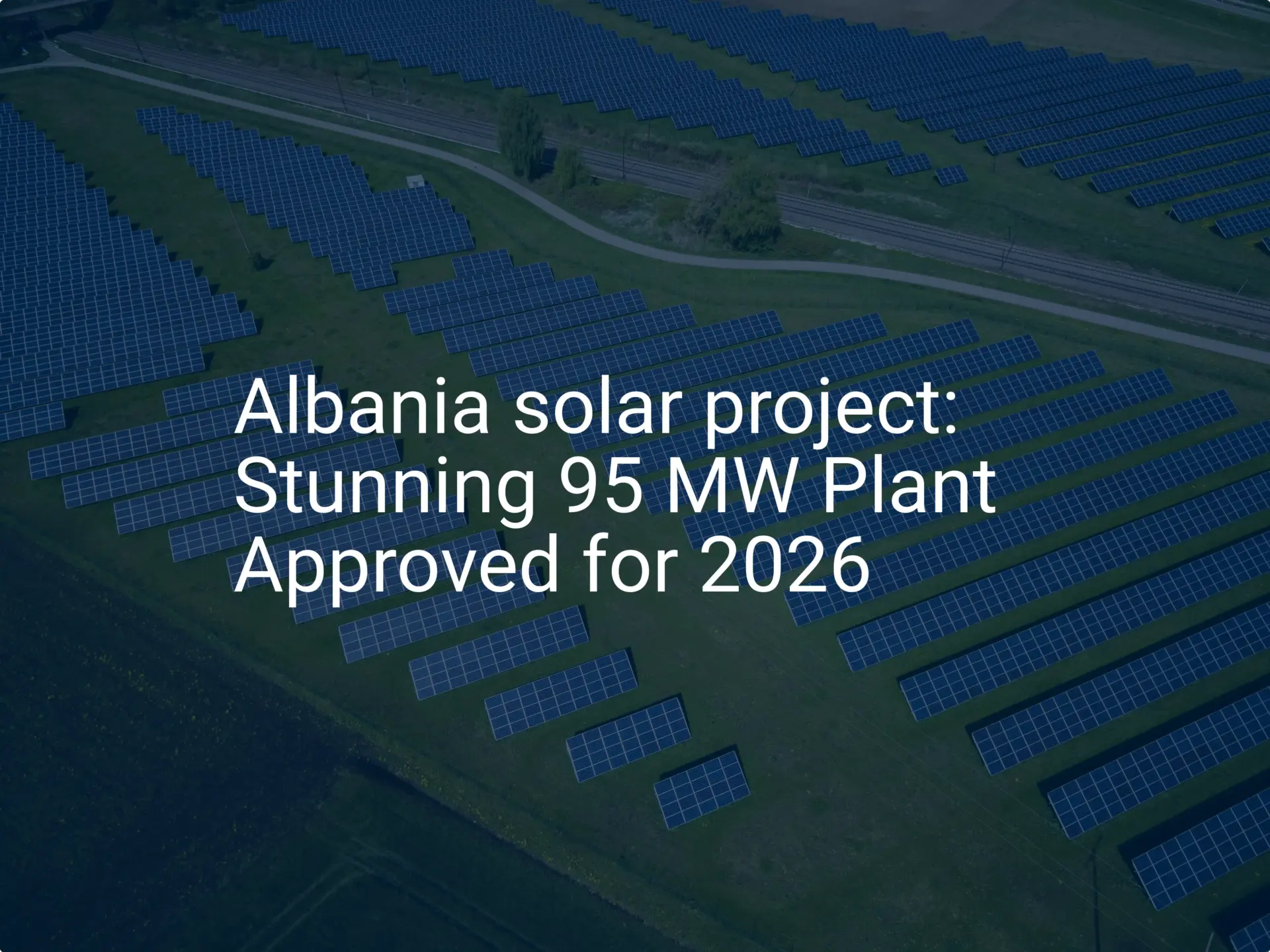Albania, the sun-kissed nation on the Adriatic, is stepping into the spotlight as a hotspot for solar energy. For entrepreneurs and investors with their sights set on the solar manufacturing game, Albania offers a landscape buzzing with compelling new opportunities. We’ve crafted this guide to give you a deep dive into the country’s business environment, arming you with the critical insights needed to set up your own solar module production. With over two decades of experience at PVknowhow.com helping businesses launch their solar module production lines, we understand the crucial data points you need for solid groundwork and effective due diligence.
Table of Contents
Albania’s Renewable Energy Landscape: Why Solar is Shining Bright
Before diving headfirst into manufacturing, any potential investor must understand Albania’s current energy situation. The nation has long leaned heavily on hydropower, and while it’s a fantastic renewable source, this dependency comes with its own set of challenges—especially with the climate variations we’re all experiencing.
Current Energy Mix: The Hydropower Story
Currently, hydropower dominates Albania’s electricity generation, representing a significant 90-98% of its domestic production, as highlighted by UNESCAP. This heavy reliance underscores the strategic push to diversify the energy mix, and solar power is emerging as a prime candidate to boost both energy security and resilience.
National Renewable Energy Targets: Aiming High
The Albanian government is not shy about its green ambitions. It’s aiming for a solid 1 GW of installed solar capacity by 2030 and targeting a total solar panel production capacity of 490 MW (insights from our research at PVKnowhow and the Green for Growth Fund). Some projections even suggest Albania could reach an impressive 1,074 MW of solar PV capacity by 2030, according to Energypedia. These aren’t just numbers; they are clear signals of strong government commitment and a well-defined path forward for solar. This momentum is further supported by recent news, with 54 MW of new solar projects approved in early 2025 and major players like ENEL (eyeing 100 MW) and Edison (with 48.5 MW) well into the permitting stage for substantial ventures (as reported by PV-Magazine and our team at PVKnowhow).
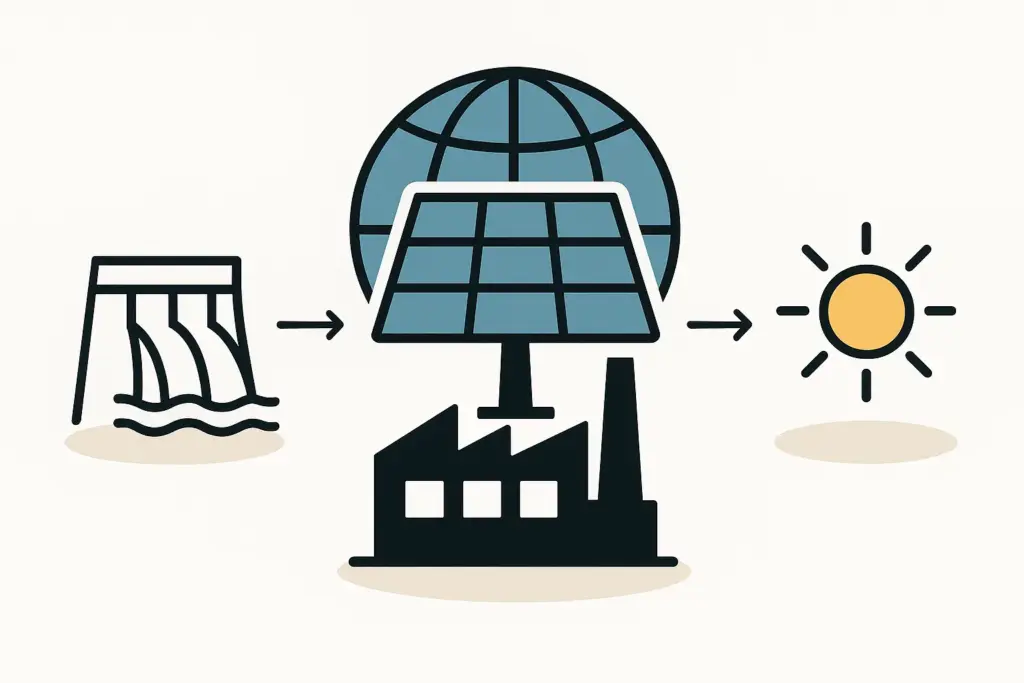
The Big Picture: Energy Security, Diversification, and EU Alignment
So, what’s the real engine behind this solar drive? It comes down to a few critical factors:
- Stronger Energy Security: Moving away from heavy reliance on hydropower and, at times, imported energy.
- Smarter Diversification: Building a more balanced and robust energy portfolio that can weather different conditions.
- Aligning with the EU: As an EU candidate country, Albania is actively working to bring its energy policies in line with European Union standards and ambitious green goals. The opening of Cluster 1 “Fundamentals” in its EU accession talks in October 2024 was a significant step, signaling a real commitment to reforms that genuinely benefit investors (sources: EBRD, U.S. State Department).
And here’s a compelling fact: the estimated technical potential for solar PV in Albania is a whopping 2,378 MW (data from Energypedia), showing enormous room for growth, even beyond current targets.
Want to learn more or need expert help? Visit our free e-course or explore our services. Or, if you’re ready to dive deeper, our Premium Business Plan E-Course offers personalized guidance to get your venture off the ground. Let’s make your solar journey smooth and successful.
Economic Overview and Investment Climate for Manufacturing: Is Albania a Good Fit?
Let’s talk money and stability. Albania’s economy has shown impressive resilience and growth lately, making it an increasingly attractive spot for foreign direct investment (FDI), especially in the energy sector.
Macroeconomic Stability: A Steady Foundation
The country has demonstrated consistent GDP growth, and ongoing efforts aim to keep inflation well-managed—a relief for any investor. The energy sector, in particular, has been a magnet for FDI, attracting over $1 billion in recent years (a figure noted at PVKnowhow).
The EU Accession Dividend: A Pathway to Progress
The impact of Albania’s journey towards EU membership cannot be overstated. It’s a powerful catalyst for positive change, driving reforms that enhance political stability, strengthen the rule of law, and make the business climate smoother—all factors that significantly boost investor confidence.
Legal and Judicial Reforms: Building Trust
Ongoing improvements in the legal and judicial systems are also encouraging, creating a more transparent and predictable environment for businesses—which is crucial for long-term manufacturing investments.
Specific Incentives for Solar Manufacturing Ventures: What’s on Offer?
While specific incentives can change, Albania has shown its willingness to support strategic sectors. For instance, the introduction of a reduced profit tax from 15% to 5% for software development companies (mentioned by the U.S. State Department) suggests the potential for similar perks in high-tech manufacturing fields like solar PV. Our best advice? Always seek the most current information on tax breaks, subsidies, or support mechanisms specifically tailored for renewable energy manufacturing. Things move fast!
Navigating the Regulatory Maze: Setting Up Your Solar Manufacturing Plant in Albania
Okay, let’s get down to brass tacks. Understanding the local rules and regulations is essential when planning to establish a solar manufacturing facility—and there are no shortcuts.
Key Legislation: The Rules of the Game for Renewables and Manufacturing
Albania has specific laws and regulations governing investments in both renewable energy and general manufacturing. These comprehensive frameworks cover everything from project development to operational standards.
Step-by-Step: Licensing and Permitting for Your Operations
Obtaining the necessary licenses and permits for a manufacturing plant involves several key administrative steps. The good news is the government is actively working to make these processes smoother. Our tip? Engaging with local experts or agencies like AIDA (Albanian Investment Development Agency) can be a massive help.
Environmental Compliance and Standards: Going Green
Naturally, your manufacturing operations will need to comply with Albania’s environmental regulations. These standards are increasingly aligning with EU directives, emphasizing sustainability, which is a positive development for everyone.
Land Acquisition and Industrial Zones: Finding Your Spot
Finding suitable land and accessing industrial zones with proper infrastructure are key considerations. The government has been proactive in developing specialized economic zones, which might offer real advantages for manufacturers and are definitely worth investigating.
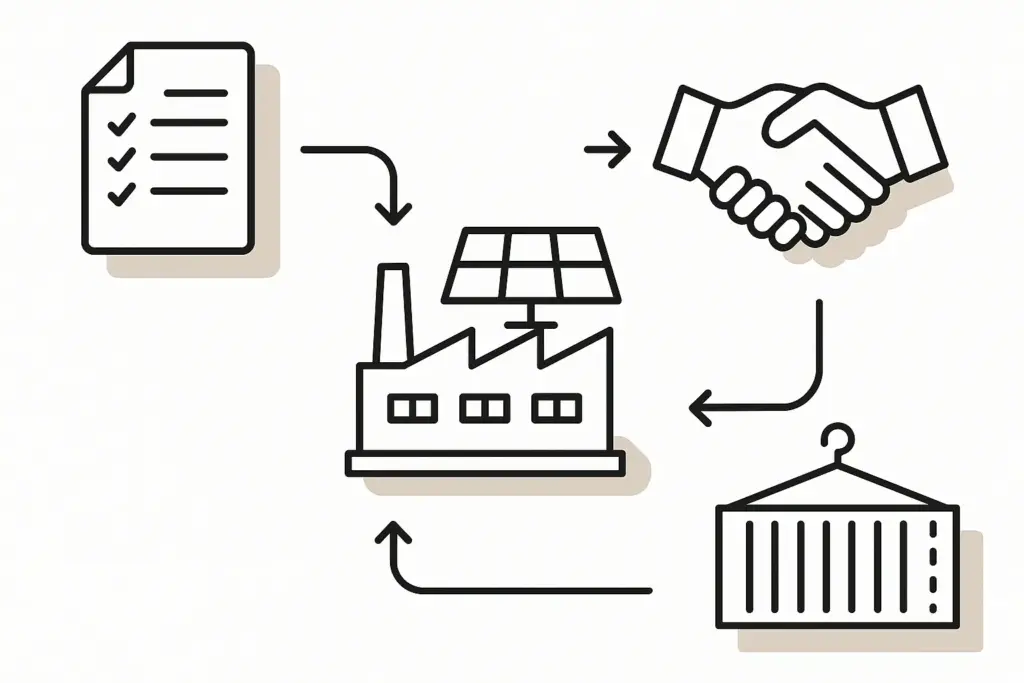
The Nuts and Bolts: Making Business Easy for Solar Manufacturers
Beyond the big-picture regulations, it’s the day-to-day practicalities of running a business that often determine an investment’s success.
Establishing a Legal Entity: Getting Official
The process of setting up a company in Albania is, thankfully, relatively straightforward, with various legal structures available that offer flexibility for foreign investors.
Labor Market: Your Team, Your Costs, The Rules
Albania offers a relatively young workforce and competitive labor costs. For specialized roles in solar manufacturing, however, you may need to invest in training and skill development. Rest assured, robust labor laws are in place to protect workers’ rights and regulate employment conditions.
Infrastructure Deep Dive: The Essential Foundations
Let’s look at what’s on the ground:
- Industrial Infrastructure: The availability of industrial sites with reliable utilities (power, water, waste management) is improving. That said, it’s always smart to carefully assess the specific needs of your solar factory.
- Logistics: Albania’s main port in Durrës, coupled with its developing road network, provides crucial access for importing raw materials and shipping out finished products. And don’t forget to factor in customs procedures.
- Grid Infrastructure: While vital for solar power plants, a stable electricity grid is also crucial for energy-intensive manufacturing. Major investments are planned for grid upgrades, largely to support the renewable energy boom (as reported by PV-Magazine and ScienceDirect), which will undoubtedly benefit industrial consumers.
Access to Finance: Funding Your Venture
Finding funds is a key piece of the puzzle. The Albanian banking sector, along with international financial institutions like the EBRD and the World Bank, are active in financing projects in Albania. Take the Blue 1 Solar Project, for instance—a utility-scale project being developed without government subsidies. This suggests that alternative financing structures are becoming more viable (mentions from MIGA, Green for Growth Fund).
Market Opportunities for Albanian-Made Solar Modules: Who Will Buy Your Panels?
So, you set up shop—who’s going to buy your solar modules? Demand in Albania is poised for serious growth, fueled by domestic needs and export potential.
Domestic Demand: Fueling Albania’s Own Solar Boom
With ambitious solar installation targets (1 GW by 2030, remember?), there will be a strong internal market for locally produced solar panels. Recent project announcements, like Voltalia’s massive 140 MW Karavasta Solar Park (the largest in the Western Balkans) and Voltalia’s other Spitalle project, highlight this growing appetite (as covered by Euronews.al, Voltalia).
Export Potential: Reaching Balkan and EU Markets
Thanks to its strategic location, Albania could become a fantastic manufacturing hub for exporting solar modules to neighboring Balkan countries and, increasingly, the larger EU market. Combining favorable trade agreements with competitive production costs makes the potential here significant.
Developing the Local Solar Value Chain: A Ripple Effect
What’s particularly exciting is that establishing local solar module manufacturing can do more than just produce panels. It can spark the growth of a wider domestic solar value chain—suppliers of components, installation services, maintenance providers—and cultivate an entire ecosystem.
Competitive Landscape: Who’s Who in Albanian Solar?
The Albanian solar market is buzzing with activity, featuring both international giants and energetic local players.
Overview of Major Solar Project Developers: The Big Names
International companies with strong reputations like Voltalia, ENEL Green Power, and Edison are developing large-scale solar power plants. Their presence is a strong vote of confidence in the market’s potential (insights from PVKnowhow).
Current State of Solar Component Manufacturing in Albania: Room to Grow
Large-scale solar module manufacturing in Albania is still in its early days, which presents a significant opportunity for new entrants to find their niche and make their mark. Existing related industries may also offer a foundational skilled labor pool or component supply capabilities.
Opportunities for New Entrants in Manufacturing: Your Chance to Shine
This gap in local, large-scale solar module production, combined with growing demand and clear government support, creates a genuinely favorable environment for pioneering manufacturing investors. This could be your moment!
Risk Assessment and Mitigation: Smart Moves for Manufacturing Investors
While the opportunities are exciting, potential investors should go in with their eyes open and consider the challenges.
Identifying Potential Challenges: What to Watch Out For
- Bureaucratic Hurdles: Administrative delays and complex procedures can sometimes present challenges, though ongoing reforms aim to smooth these out.
- Infrastructure Gaps: While improving, the specific infrastructure for sophisticated manufacturing (specialized logistics, uninterrupted high-quality power) requires careful, site-specific assessment.
- Skilled Labor Development: Securing a steady pipeline of technicians and engineers skilled in solar PV manufacturing may require proactive measures, such as partnering with vocational training centers or developing in-house programs.
- Policy and Regulatory Stability: As with any emerging market, investors appreciate policy consistency. Albania’s path to EU accession helps anchor regulatory stability.
Strategies for Successful Investment and Operation: Playing it Smart
- Thorough Due Diligence: This is non-negotiable. Engage with local legal and business consultants who truly know the lay of the land.
- Strong Local Partnerships: Teaming up with local entities can be invaluable for navigating the business landscape and building trust.
- Focus on Quality and Standards: Meeting international standards will be crucial for your success, both domestically and for exports.
- Engagement with Government Agencies: Keeping an open, proactive line of communication with bodies like AIDA can help make processes smoother and keep you informed.
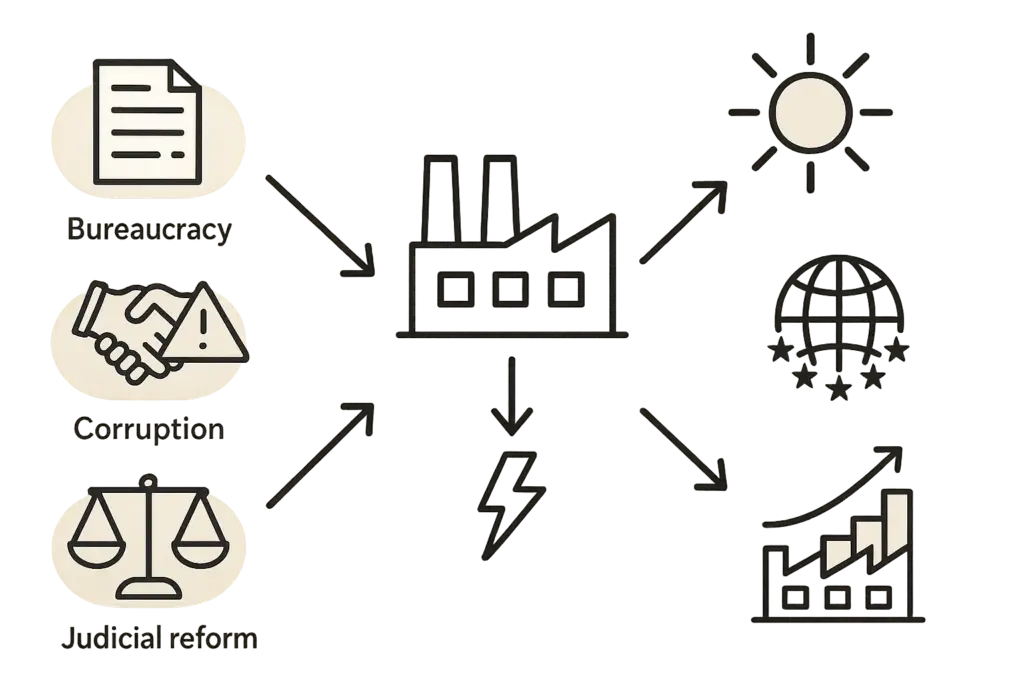
Spotlight on Success: Pioneering Solar Investments Lighting Up Albania
It’s always inspiring to see success in action. Several large-scale solar projects highlight how viable and attractive Albania’s solar sector has become:
- Karavasta Solar Park (Voltalia): At an impressive 140 MW, this project isn’t just big; it’s a landmark for Albania and the Western Balkans, showcasing the potential for large-scale solar deployment (as reported by Euronews.al).
- Blue 1 Solar Project: This project is interesting because it’s a utility-scale venture moving forward without direct government subsidies, suggesting growing market maturity and financial viability (information from MIGA).
- ENEL Green Power & Edison Projects: These significant planned investments in Fier county further demonstrate strong interest from major European energy players (according to PVKnowhow sources).
While these are power generation projects, their success paves the way. It builds confidence for investments across the entire solar value chain—and that absolutely includes manufacturing.
Conclusion: Why Albania is a Strategic Choice for Your Solar Manufacturing Investment
So, what’s the big takeaway? We believe Albania is at a promising juncture for solar manufacturing investment. Its clear commitment to renewable energy, driven by national strategy and EU aspirations, creates a supportive policy environment. Add a growing domestic market and the potential to export to Balkan and European regions, and the commercial opportunities are fantastic. While challenges exist, they are being actively addressed through ongoing reforms and infrastructure development.
For entrepreneurs and companies looking to establish a solid foothold in Europe’s expanding solar manufacturing scene, Albania offers a compelling mix: exciting growth potential, a strategic location, and an investment climate on an upward trajectory. The journey from idea to an operational solar factory is complex, but with careful planning, robust due diligence, and the right expert guidance, success in Albania’s burgeoning solar market is absolutely within reach.
Ready to take the next step? Our comprehensive ‘Solar Manufacturing Opportunities in Albania Report‘ provides in-depth analysis, financial modeling, and tailored market entry strategies. Visit PVknowhow.com or contact our experts today – we’re here to help you realize your solar manufacturing ambitions in Albania.
Frequently Asked Questions (FAQs): Your Questions Answered!
Q1: What’s really fueling the solar energy boom in Albania?
A1: Great question! It’s a combination of factors: an urgent need to diversify from a heavy reliance on hydropower (which can be unpredictable), ambitious national renewable energy targets (aiming for 1 GW of solar by 2030), a strong desire for greater energy security, and aligning with EU green transition goals as part of its accession process.
Q2: Are there specific government perks for setting up solar manufacturing in Albania?
A2: Albania generally welcomes foreign investment. When it comes to specific incentives for solar manufacturing, however, it’s always best to check the latest information from current government programs. The government has shown a keenness to support strategic sectors, and bodies like the Albanian Investment Development Agency (AIDA) are your go-to resource for up-to-date info on available schemes.
Q3: How’s the infrastructure looking for manufacturing in Albania?
A3: That’s a key question—infrastructure is critical. Major ports like Durrës, along with road networks and industrial zones, are constantly improving. For manufacturers, we strongly advise conducting thorough, site-specific checks on utilities and logistics for your particular needs. On a positive note, big investments are planned for the electricity grid to support renewable energy growth, which will benefit industrial users.
Q4: Can I find a skilled workforce for solar panel manufacturing?
A4: Albania has a relatively young and trainable workforce, and labor costs are generally competitive. For highly specialized roles in high-tech solar manufacturing, you will likely need to invest in targeted training programs. This could mean partnering with local educational institutions or developing talent in-house. It’s an investment in your future team!
Q5: What are the main market opportunities for solar modules made in Albania?
A5: The biggest immediate market is domestic, driven by Albania’s ambitious solar installation targets. Beyond that, its strategic location opens up considerable export potential to neighboring Balkan countries and the wider EU market, especially if products meet international quality standards and leverage favorable trade agreements.
Q6: How does Albania’s EU accession process affect us as foreign investors?
A6: Generally, the EU accession process is a positive force for investors. It drives important reforms in governance, rule of law, economic policies, and environmental standards. This ultimately means a more stable, transparent, and predictable investment environment, which naturally boosts investor confidence.

